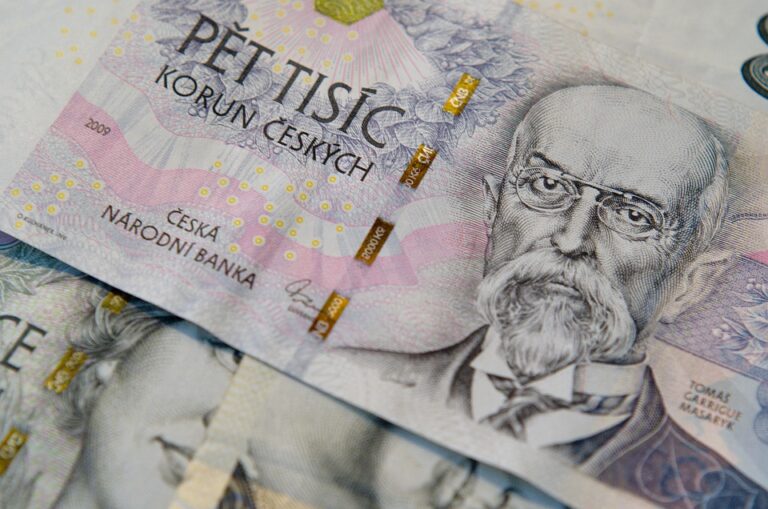Last updated Jan. 31, 2025 by Charles Zemub
Cryptocurrency is reshaping the global financial landscape, offering decentralized and secure solutions for transactions, investments, and much more. Whether you are an investor, trader, or simply curious about the digital currency world, understanding the most popular types of cryptocurrencies is crucial. This comprehensive guide explores 17 of the most influential digital currencies that are making waves today.
1. Bitcoin (BTC)
Bitcoin, introduced by the pseudonymous Satoshi Nakamoto in 2009, is the first and most well-known cryptocurrency. Its primary appeal lies in its decentralized structure and the fact that it operates on a peer-to-peer network, allowing for secure transactions without the need for intermediaries. Bitcoin has often been referred to as "digital gold" due to its finite supply capped at 21 million coins.
2. Ethereum (ETH)
Ethereum is a leading open-source platform that uses blockchain technology to enable smart contracts and decentralized applications (dApps). Launched in 2015 by Vitalik Buterin, Ethereum extends beyond being a digital currency to becoming a foundational layer for many blockchain projects, making it immensely popular in the tech community.
3. Ripple (XRP)
Ripple is a unique cryptocurrency that focuses on facilitating real-time cross-border payment systems. Created by Ripple Labs Inc., Ripple’s main advantage is its low transaction costs and fast processing times, which are attractive to financial institutions seeking efficient international payment solutions.
4. Litecoin (LTC)
Often referred to as the "silver" to Bitcoin’s "gold," Litecoin was created by Charlie Lee in 2011. It offers quicker transaction confirmation times and improved storage efficiency over Bitcoin, making it a suitable choice for smaller-scale transaction applications.
5. Cardano (ADA)
Cardano is a blockchain platform renowned for its scientific approach and peer-reviewed academic research used in the development of its technology. Founded by Charles Hoskinson, a co-founder of Ethereum, Cardano aims to deliver more advanced features than any protocol previously developed.
6. Polkadot (DOT)
Polkadot is a multi-chain network that facilitates the transfer of any data or asset across disparate blockchains, aiming to make a web where our data is secure and our identity is owned. Polkadot’s innovative consensus and interoperability features distinguish it from other platforms.
7. Bitcoin Cash (BCH)
Bitcoin Cash emerged in 2017 from a hard fork in the Bitcoin blockchain. It was developed to increase the block size, allowing more transactions to be processed and improving scalability. Bitcoin Cash aims to be a better medium of exchange than Bitcoin by offering faster transaction times and lower costs.
8. Binance Coin (BNB)
Initially used as a discount mechanism for users on the Binance Exchange, Binance Coin has since expanded its functionality. It can be used for trading, transaction fees, and more on the Binance platform, contributing to its growing popularity.
9. Chainlink (LINK)
Chainlink is a decentralized oracle network that connects smart contracts with real-world data, APIs, and traditional banking systems seamlessly. Chainlink’s ability to facilitate secure interactions between smart contracts and external data feeds is what makes it highly sought after in various industries.
10. Stellar (XLM)
Stellar, created by Jed McCaleb, is a platform designed to facilitate fast, low-cost international financial transactions. It was developed with a goal of bridging the gap between cryptocurrencies and conventional monetary institutions or payment processors.
11. Dogecoin (DOGE)
Dogecoin started as an internet meme joke but quickly gained popularity for its strong community and practical usage in tipping online content creators. It leverages a simplified mining process and quick processing times, making it more accessible for mainstream users.
12. Tether (USDT)
Tether is a stablecoin linked to traditional fiat currencies such as the US dollar, essentially providing a stable value. It is utilized by traders looking to maintain their funds’ value in the volatile crypto market.
13. Solana (SOL)
Solana is a high-performance blockchain supporting developers worldwide in the creation of decentralized applications. Solana boasts impressive transaction speeds and lower costs, which have contributed to its rapid rise in the crypto realm.
14. USD Coin (USDC)
USD Coin is another stablecoin that is pegged 1:1 to the US dollar, offering the efficiency of cryptocurrency transactions but with the stability of fiat currency. It’s supported by a framework of financial partners and regulatory oversight.
15. VeChain (VET)
VeChain is a blockchain platform designed for supply chain management and business processes. It opens up new methods for businesses to increase transparency and reduce inefficiencies through its traceable, tamper-proof distributed ledger technology.
16. Tron (TRX)
Tron is a decentralized platform aimed at transforming the entertainment industry by providing free content sharing. It seeks to eliminate intermediaries in digital content sharing and revolutionize content creators’ and consumers’ interaction.
17. Monero (XMR)
Monero is well-known for its privacy-centric approach to transactions. Using advanced cryptographic techniques, Monero ensures that sender, receiver, and amount details remain confidential, appealing to users who prioritize privacy and anonymity.
✓ Short Answer
Cryptocurrency represents digital or virtual currencies using cryptography for secure transactions. The significant advantage of cryptocurrencies is their decentralized nature, operating independently of central banks, providing greater privacy, security, and potentially lower transaction fees. Popular cryptocurrencies like Bitcoin, Ethereum, and Binance Coin have garnered mass adoption and use case expansion, from financial transactions and Smart Contracts to supply chain management. The rapid evolution of the cryptocurrency space signifies a growing shift toward decentralized finance, offering numerous opportunities and challenges for individuals and businesses worldwide.
FAQs
What is cryptocurrency?
Cryptocurrency is a form of digital currency that relies on cryptographic protocols to secure transactions, control the creation of additional units, and verify the transfer of assets on a decentralized system.
How do cryptocurrencies work?
Cryptocurrencies utilize blockchain technology—a distributed ledger that records all transactions across a network. This ensures transparency and security without the need for a central authority.
Why are cryptocurrencies valuable?
Cryptocurrencies derive value from various factors, including scarcity, utility, technological foundation, and the demand and trust of users within the marketplace.
Are cryptocurrencies legal?
The legal status of cryptocurrencies varies worldwide. While some countries embrace them, others impose restrictions or outright bans. It’s vital to understand the regulations in your specific jurisdiction.
How can I purchase cryptocurrency?
Cryptocurrencies can be purchased through online exchanges, peer-to-peer platforms, or Bitcoin ATMs. You typically need to set up a digital wallet to store your cryptocurrencies securely.
What are the risks involved with cryptocurrencies?
Cryptocurrencies come with risks such as volatility, regulatory changes, security threats, potential for scams, and loss of private keys. It’s important to conduct thorough research before investing.
Can cryptocurrencies be converted to cash?
Yes, cryptocurrencies can be converted to cash using exchanges, peer-to-peer platforms, or dedicated services that allow for crypto-to-fiat transactions.
This guide provides a snapshot of the most popular cryptocurrencies today, their impact, and their prospects. Understanding these different types can empower you to make informed decisions and harness the immense potential that digital currencies offer.






